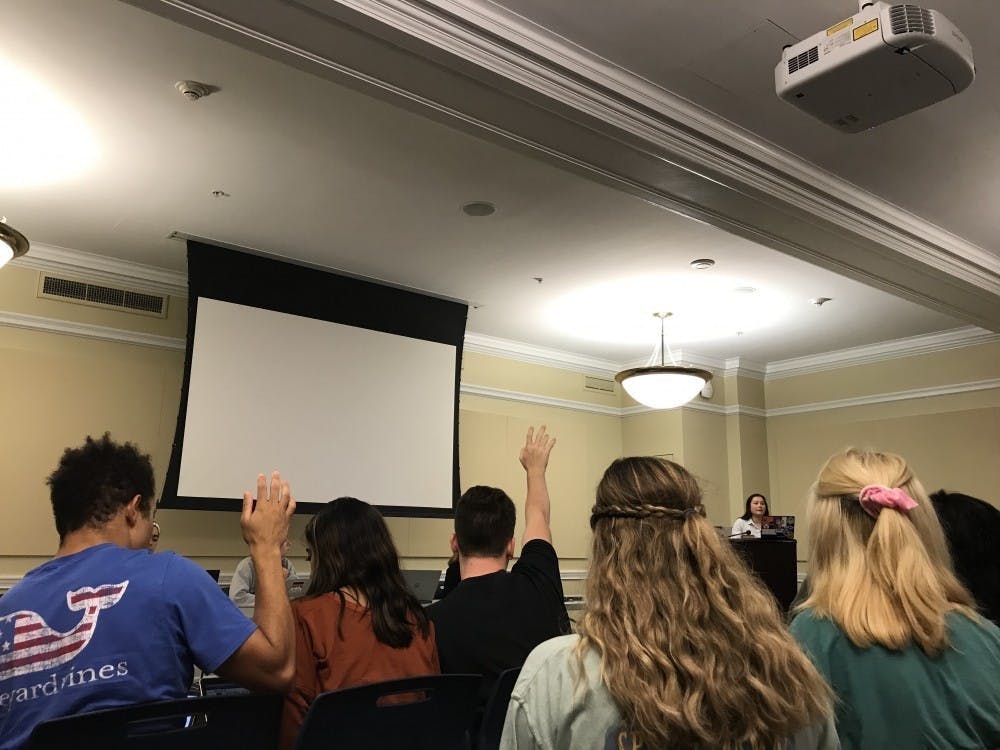Following recent reporting about the University’s use of a “watch list,” which aids well-connected students with their applications during the admissions cycle, the Student Council Executive Board issued a firm statement condemning the practice.
After the release of this statement, the Student Council representative body considered a resolution based on the Executive Board’s press release. Unfortunately, what followed the introduction of the resolution was several minutes of disagreement and confusion among the representative body. Ultimately, the representative body voted the resolution down due to a high number of abstentions and votes against the statement, with the final vote tally being nine in favor, eight against and six abstaining.
Despite the lack of consensus on the resolution, Student Council President Ellie Brasacchio, who ran on a platform of helping low-income and first generation students, addressed the scandal in the Student Council Newsletter. She “strongly [denounced],” the practice and called for its abolition, saying, “It puts up yet another barrier for first-generation and low-income students to attend the University.” This condemnatory email flies in the face of the results of the representative body’s failure to pass a resolution.
If Brasacchio wishes to fulfill her goal in helping low-income and first-generation students at the University, she must generate a consensus on the representative body in condemning this practice. These actions are especially necessary given the Student Council representative’s failure to pass a simple and inconsequential resolution, which solidifies much of the student body’s criticisms that the organization is unable to achieve tangible change. The Council must do something to begin fulfilling its stated purpose to “protect and improve the rights, opportunities, and quality of life of every student at the University of Virginia.”
In defense of their position against the resolution, many representatives spoke about wanting to hear from the administration officials directly. However, this assertion is largely nonsensical considering University’s spokesperson Wes Hester confirmed the practice’s existence in The Cavalier Daily’s original reporting. Aside from that statement, there have been no press releases from the Office of the President published on the subject, indicating the administration’s complacency with the scandal. Given that evidence, it would make sense that an organization tasked with representing all students would want to exert as much pressure as possible to provoke an official response.
It is also important to push back against the assumption that these practices are inevitable. Catering to the wealthy does happen everywhere, but that doesn't mean we should accept it and that our representatives shouldn't fight against it. The role of an elected official should not be to simply preserve the status quo, but to actively push for the betterment of all current and prospective students regardless of socioeconomic status — though condemning the “watch list” really is the bare minimum.
Moreover, given the inability of the representative body to step up to the plate and condemn a practice that is contrary to the stated values of the University, we should not be surprised how little the student body seems to care about the organization. Student election turnout has been steadily declining each year, with 2019’s election season resulting in a 12.6 percent turnout for the Student Council presidential race. To put that in perspective, Honor requires 10 percent of the student body to vote in favor of a ballot initiative for it to be considered valid, illustrating that the 2019 election was hardly representative of the student body.
This scandal could have been an opportunity for the representative body to institute real change. Though a simple resolution does not achieve this goal, the failure to take this small step indicates an even lesser ability to act decisively in the face of adversity. Students already have so little faith in the organization — it’s time for the representative body to prove them wrong.
The Cavalier Daily Editorial Board is composed of the Executive Editor, the Editor-in-Chief, the two Opinion Editors and their Senior Associate. The board can be reached at eb@cavalierdaily.com.







